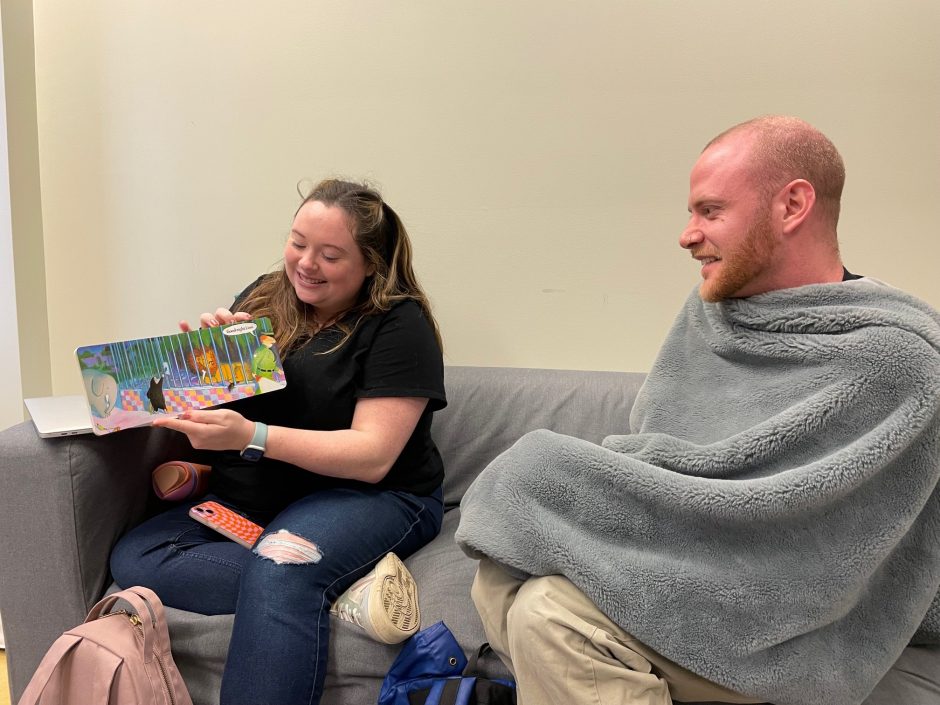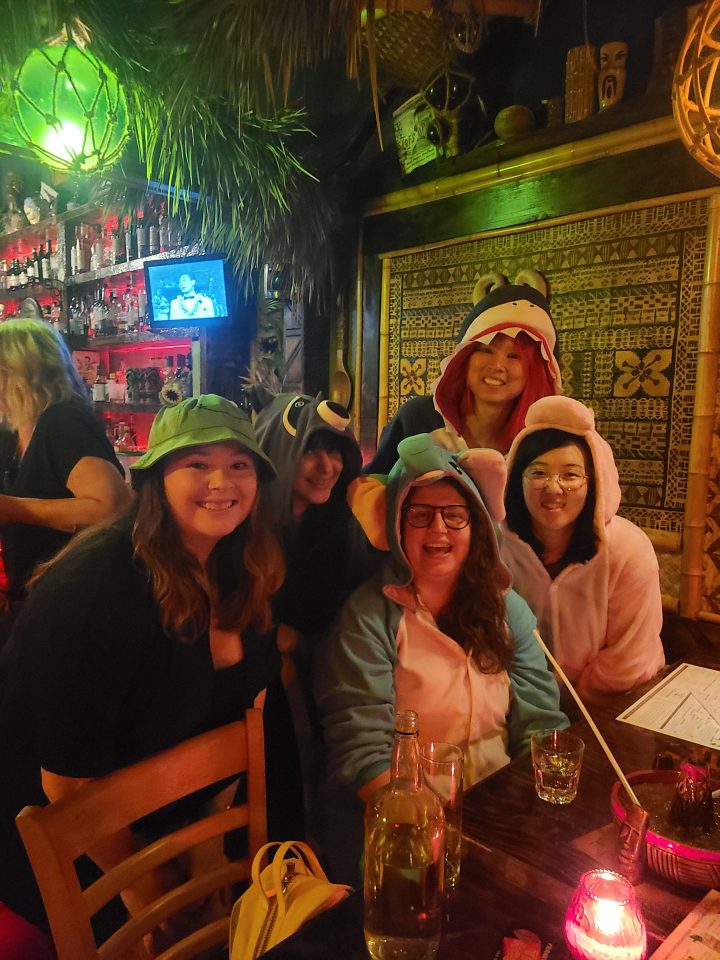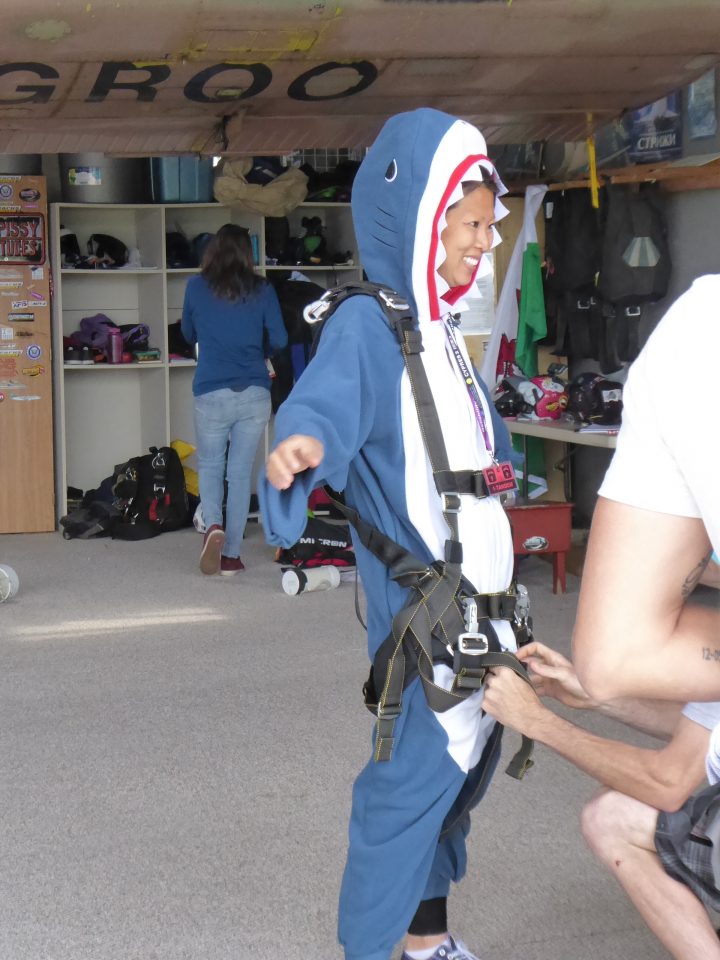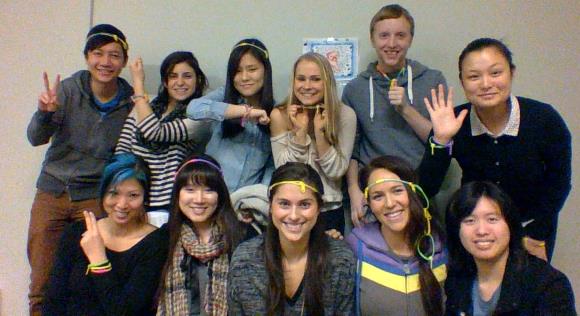BOLDED PUBLICATIONS BEST REFLECT THE CURRENT DIRECTION OF OUR LAB.
There are different authorship conventions in psychology. I have mostly tended to use the convention where the first author has contributed the most to the project, the second author the second most, and so on. (The last author has usually contributed the least and is not necessarily the senior author). More recently, I have been shifting to the convention where the last author is the senior author.
I value supporting students as authors on publications. In the past when a student is first author and I am second author, this is usually a student in my lab working under my supervision. More recently I have been shifting the convention where the student in my lab is first author and I am last author.
Contact Amori Mikami for reprints: mikami@psych.ubc.ca
*Author was a student at the time of the publication

Books
Mikami, A.Y. & Normand, S. (2022). Parents as friendship coaches for children with ADHD: A clinical guide. New York: Routledge. https://www.routledge.com/Parents-as-Friendship-Coaches-for-Children-with-ADHD-A-Clinical-Guide/Mikami-Normand/p/book/9781032118284 I donate all royalties to CADDAC to support ADHD awareness, education, and advocacy in Canada.
Articles in press and 2025
Becker, S.P., Vaughn, A.J., Zoromski, A.K., Burns, G.L., Mikami, A.Y., Fredrick, J.W., Epstein, J.N., Peugh, J.L., & Tamm, L. (2025). A multi-method examination of peer functioning in children with and without cognitive disengagement syndrome. Journal of Clinical Child and Adolescent Psychology, 54(3), 389-404. https://doi.org/10.1080/15374416.2024.2301771
*Karasavva, V., *Miller, C.E., *Groves, N., *Montiel, A.E., Canu, W., & Mikami, A.Y. (2025). A double-edged hashtag: Evaluation of #ADHD-related TikTok content and its associations with perceptions of ADHD. PLoS ONE 20(3): e0319335. https://doi.org/10.1371/journal. pone.0319335
Mikami, A.Y., *Khalis, A., & *Karasavva, V. (2025). Logging out or leaning in? Social media strategies for enhancing well-being. Journal of Experimental Psychology: General, 154(1), 171-189. https://doi.org/10.1037/xge0001668
Mikami, A.Y. & *Miller, C.E. (2025). Child interpretations of teacher behaviors directed toward students with and without ADHD symptoms. Research on Child and Adolescent Psychopathology, 53, 443-457. https://doi.org/10.1007/s10802-024-01280-z
*Miller, C. E., Arnold, L.E., Chronis-Tuscano, A., Hechtman, L., Hinshaw, S.P., Kofler, M.J., Molina, B.S.G., Normand, S., Pfiffner, L.J. & Mikami, A.Y. (in press). Social skill profiles in ADHD and comorbid disorders. Journal of Attention Disorders. https://doi.org/10.1177/10870547251344711
*Ng-Cordell, E., Storch, E. A., Kendall, P. C., Wood., J. J., Mikami, A.Y., & Kerns, C. M. (in press). Implications of co-occurring ADHD for the cognitive behavioral treatment of anxiety in autistic children. Journal of Child Psychology and Psychiatry.
Psyllou, C., Luman, M., van den Hoofdakker, B.J., Van der Oord, S., Aghebati, A., Boyer, B.E., Buitelaar, J.K., Chronis-Tuscano, A., Daley, D., Dekkers, T., DuPaul, G.J., Fabiano, G., Ferrin, M., Franke, N., Gershy Tsahor, N., Harvey, E., Hennig, T., Herbert, S., Hoekstra, P.J., Kern, L., Mautone, J.A., Mikami, A.Y., Normand, S., Pfiffner, L.J., Shimabukuro, S., Schramm, S.A., Schweitzer, J.B., Sibley, M.H., Sonuga-Barke, E., Thompson, C., Thompson, M.J., Tripp, G., Webster-Stratton, C., Xie, Y., Leijten, P., & Groenman, A.P. (in press). Mechanisms of change and between-family differences in parenting interventions for children with ADHD: An individual participant data meta-analysis. Journal of Child Psychology and Psychiatry. https://doi.org/10.1111/jcpp.14120
*Qi, H.V., *Huo, H., & Mikami, A.Y. (in press). Barriers to mental health help-seeking among Asian American adolescents: A systematic review. Asian American Journal of Psychology. https://dx.doi.org/10.1037/aap0000373
2024

Normand, S., Lambert, M., Bakeman, R., *Guiet, J. Brendgen, M. & Mikami, A.Y. (2024). Targeting peer contagion dynamics in children with ADHD: Effects from a two-site randomized controlled trial. Journal of Clinical Child and Adolescent Psychology, 53 (3), 473-488. https://doi.org/10.1080/15374416.2024.2335633
*Karasavva, V. & Mikami, A.Y. (2024). I’ll be there for you? The Bystander Intervention Model and cyber aggression. Cyberpsychology: Journal of Psychosocial Research on Cyberspace, 18(2), Article 1. https://doi.org/10.5817/CP2024-2-1
Szwedo, D. E., *Davis, A., *Fowler, C., Mikami, A.Y., & Allen, J.P. (2024). Social media posts from friends during late adolescence as predictors of young adult physical health. Journal of Youth and Adolescence, 53, 784-798. https://doi.org/10.1007/s10964-024-01945-4
2023
*Kassab, H., Owens, J.S., Evans, S.W., *Everly, E., & Mikami, A.Y. (2023). Factors associated with teachers’ sustained intervention implementation following intensive consultation. School Mental Health, 15, 402-415. https://doi.org/10.1007/s12310-022-09555-w
Mikami, A.Y., *Miller, C.M., & *Qi, H. (2023). Interventions for students with social impairment. In S.W. Evans, J.S. Owens, C.P. Bradshaw, & M.D. Weist (Eds.), Handbook of school mental health- Innovations in science and practice, 3rd edition (pp. 57-71). New York: Springer. https://doi.org/10.1007/978-3-031-20006-9
*Monopoli, W.J., Allan, D., *Everly, E., Evans, S.W., Mikami, A.Y., & Owens, J.S. (2023). An exploration of the psychometric properties of the Social Experiences Questionnaire: Replication and extension. School Mental Health, 15, 324-227. https://doi.org/10.1007/s12310-022-09553-y
Normand, S., *Miller, N.V., & Mikami, A.Y. (2023). Contributions of friends’ problem behaviors to friendship quality in a sample of children with ADHD. Journal of Clinical Child and Adolescent Psychology, 52 (2), 244-258. https://doi.org/10.1080/15374416.2021.1941056

2022
Groenman, A.P., Hornstra, R., Hoekstra, P.J., Steenhuis, L., Aghebati, A., Boyer, B.E., Buitelaar, J.K., Chronis-Tuscano, A., Daley, D., Dehkordian, P., Dvorsky, M., Franke, N., DuPaul, G.J., Gershy, N., Harvey, E., Hennig, T., Herbert, S., Langberg, J., Mautone, J.A., Mikami, A.Y., Pfiffner, L.J., Power, T.J., Reijneveld, S.A., Schramm, S.A., Schweitzer, J.B., Sibley, M.H., Sonuga-Barke, E., Thompson, C., Thompson, M., Webster-Stratton, C., Xie, Y., Luman, M., van der Oord, S., & van den Hoofdakker, B.J. (2022). An individual participant data meta-analysis: Behavioral treatments for children and adolescents with attention-deficit/hyperactivity disorder. Journal of the American Academy of Child & Adolescent Psychiatry, 61 (2), 144-158. https://doi.org/10.1016/j.jaac.2021.02.024 This paper pooled together many datasets from ADHD treatment researchers.
*Khalis, A., *Ferrari, M.A., *Smit, S., Ewell, P., & Mikami, A.Y. (2022). You teach me and I’ll teach you: The role of social interactions on positivity elicited from playing Pokémon GO. Cyberpsychology: Journal of Psychosocial Research on Cyberspace, 16(4), Article 9. https://doi.org/10.5817/CP2022-4-9
Mikami, A.Y., *Na, J.J., *Ferrari, M.A., & Owens, J.S. (2022). A novel look at peer problems: Examining predictors of children’s sociometric ratings of classmates with ADHD symptoms. Journal of Emotional and Behavioral Disorders, 30 (4), 287-299. https://doi.org/10.1177/10634266221077260
Mikami, A.Y., Owens, J.S., Evans, S.W., *Hudec, K.L., *Kassab, H., *Smit, S., *Na, J.J., & *Khalis, A. (2022). Promoting classroom social and academic functioning among children at risk for ADHD: The Making Socially Accepting Inclusive Classrooms Program. Journal of Clinical Child and Adolescent Psychology, 51 (6), 1039-1052. https://doi.org/10.1080/15374416.2021.1929250
Mikami, A.Y., *Qi, H., & *Miller, C.M. (2022). Psychosocial interventions for peer relationship problems in children with attention deficit/hyperactivity disorder. In J.J.W. Andrews, S.R. Shaw, J.F. Domene, & C. McMorris (Eds.), Mental health assessment, prevention, and intervention: Promoting child and youth well-being (pp. 183-212). New York: Springer. https://doi.org/10.1007/978-3-030-97208-0_10

Normand, S., *Lambert, M., *Guiet, J., Brendgan, M., Bakeman, R., & Mikami, A.Y. (2022). Peer contagion dynamics in the friendships of children with ADHD. Journal of Child Psychology and Psychiatry, 63 (12), 1477-1485. http://doi.org/10.1111/jcpp.13597
*Na, J.J., *Park, J.L., *LKhagva, T., & Mikami, A.Y. (2022). The efficacy of interventions on cognitive, behavioral, and affective public stigma around mental illness: A systematic meta-analytic review. Stigma and Health, 7(2), 127-141. https://doi.org/10.1037/sah0000372
*Qi, H., Mikami, A.Y., & Owens, J.S. (2022). Associations between cross-racial friendships and children’s social and academic adjustment in racially diverse classrooms. Child Development, 93(5), 1427-1443. https://doi.org/10.1111/cdev.13773
*Smit, S., Mikami, A.Y., & Normand, S. (2022). Effects of the Parental Friendship Coaching intervention on parental emotion socialization of children with ADHD. Research on Child and Adolescent Psychopathology, 50, 101-115. https://doi.org/10.1007/s10802-021-00818-9
Stuhlman, M., Mikami, A.Y., Hofkens, T., Allen, J.P., Pianta, R.C., & *Smit, S. (2022). Integrating research-supported coaching practices into secondary teachers’ team meetings: Early indications of potential to impact collaborations, classroom interactions, and student engagement. Frontiers in Education, 7, 883226. https://doi.org/10.3389/feduc.2022.883226
2021
Faraone, S.V., + 78 coauthors, including Mikami, A.Y. (2021). The World Federation of ADHD International Consensus Statement: 208 Evidence-based conclusions about the disorder. Neuroscience & Biobehavioral Reviews, 128, 789-818. https://doi.org/10.1016/j.neubiorev.2021.01.022 This consensus statement reflects the work of 79 members of the World Federation of ADHD.
*Jia, M., Mikami, A.Y., & Normand, S. (2021). Social resilience in children with ADHD: Parent and teacher factors. Journal of Child and Family Studies, 30, 839–854. https://doi.org/10.1007/s10826-021-01907-5
*Lee, Y., Mikami, A.Y., & Owens, J.S. (2021). Children’s ADHD symptoms and friendship patterns across a school year. Research on Child and Adolescent Psychopathology, 49, 643-656. https://doi.org/10.1007/s10802-021-00771-7 This journal was formerly the Journal of Abnormal Child Psychology.
Owens, J.S., *Qi, H., Himawan, L., *Lee, M., & Mikami, A.Y. (2021) Teacher practices, peer dynamics, and academic enablers: A pilot study exploring direct and indirect effects among children at risk for ADHD and their classmates.
Frontiers in Education. 5:609351. https://doi.org/10.3389/feduc.2020.609451

*Saffer, B.Y., Mikami, A.Y., *Qi, H., Owens, J.S., & Normand, S. (2021). Factors impacting agreement between parents and teachers on ratings of children’s ADHD symptoms: An exploratory study using polynomial regression analyses. Journal of Psychopathology and Behavioral Assessment, 43, 793-807. https://doi.org/10.1007/s10862-021-09892-1
*Smit, S., Mikami, A.Y., & Normand, S. (2021). Parenting children with ADHD: Associations with parental ADHD, parental depression, and child behavior problems. Journal of Child and Family Studies, 30, 1156–1170. https://doi.org/10.1007/s10826-021-01944-0
*Tan, E., Mikami, A.Y., *Luzhanska, A., & Hamlin, J.K. (2021). The homogeneity and heterogeneity of moral functioning in preschool. Child Development, 92 (3), 959-975. https://doi.org/10.1111/cdev.13458
2020

*Keifer, C.M., Mikami, A.Y., Morris, J.P., *Libsack, E.J., & Lerner, M.D. (2020). Prediction of social behavior in Autism Spectrum Disorders: Explicit versus implicit social cognition. Autism, 24(7), 1758-1772. https://doi.org/10.1177/1362361320922058
Mikami, A.Y., Owens, J.S., *Hudec, K.L., *Kassab, H., & Evans, S.W. (2020). Classroom strategies designed to reduce child problem behavior and increase peer inclusiveness: Does teacher use predict students’ sociometric ratings? School Mental Health, 12, 250-264. https://doi.org/10.1007/s12310-019-09352-y
Mikami, A.Y., Normand, S., *Hudec, K.L., *Guiet, J., *Na, J.J., *Smit, S., *Khalis, A., & Maisonneuve, M.-F. (2020). Treatment of friendship problems in children with Attention-Deficit/Hyperactivity Disorder: Initial results from a randomized clinical trial. Journal of Consulting and Clinical Psychology, 88(10), 871-885. https://doi.org/10.1037/ccp0000607
Normand, S., Mikami, A.Y., Savalei, V., & *Guiet, J. (2020). A multiple indicators multiple causes (MIMIC) model of friendship quality and comorbidities in children with Attention-Deficit/Hyperactivity Disorder. Psychological Assessment, 32(7), 698–704. https://doi.org/10.1037/pas0000824
Owens, J.S., Allan, D.M., *Kassab, H., & Mikami, A.Y. (2020). Evaluating a short form of the Academic Competence Evaluation Scales: Expanded examination of psychometric properties. School Mental Health, 12, 38-52. https://doi.org/10.1007/s12310-019-09347-9
*Smit, S., Mikami, A.Y., & Normand, S. (2020). Correlates of loneliness in children with Attention-Deficit/Hyperactivity Disorder: Comorbidities and peer problems. Child Psychiatry and Human Development, 51 (3), 478-489. https://doi.org/10.1007/s10578-020-00959-w
2019
Garcia Bacete, F., Marande, G., & Mikami, A.Y. (2019). Evaluation of a multi-component and multi-agent intervention to improve classroom social relationships among elementary school-age children. Journal of School Psychology, 77, 124-138. https://doi.org/10.1016/j.jsp.2019.09.001
Gregory, A., Ruzek, E., DeCoster, J., Mikami, A.Y., & Allen, J.P. (2019). Focused classroom coaching and widespread racial equity in school discipline. AERA Open, 5 (4). https://doi.org/10.1177/2332858419897274
Mikami, A.Y., *Smit, S., & Johnston, C. (2019). Teacher attributions for children’s Attention-Deficit/Hyperactivity Disorder behaviors predict experiences with children and with classroom behavioral management in a summer program practicum. Psychology in the Schools, 56 (6), 928-944. https://doi.org/10.1002/pits.22250
Mikami, A.Y., Miller, M., & Lerner, M.D. (2019). Social functioning in youth with Attention-Deficit/Hyperactivity Disorder compared to Autism Spectrum Disorder: Transdiagnostic commonalities and differences. Clinical Psychology Review, 68, 54-70. https://doi.org/10.1016/j.cpr.2018.12.005
Mikami, A.Y., Szwedo, D.E., *Khalis, A., *Jia, M., & *Na, J.J. (2019). Online peer interactions predict emerging adults’ academic and emotional adjustment in the transition to university. Journal of Research on Adolescence, 29 (1), 210-224. https://doi.org/10.1111/jora.12377

2018
*Emeh, C.C., Mikami, A.Y., & Teachman, B.A. (2018). Explicit and implicit positive illusory bias in children with Attention-Deficit/Hyperactivity Disorder. Journal of Attention Disorders, 22 (10), 994-1001. https://doi.org/10.1177/1087054715612261
García-Castellar, R., Jara-Jiménez, P., *Sánchez-Chiva, D., & Mikami, A.Y. (2018). Social skills deficits in a virtual environment among Spanish children with Attention-Deficit/Hyperactivity Disorder. Journal of Attention Disorders, 22(8), 776-786. https://doi.org/10.1177/1087054715591850
*Jia, M. & Mikami, A.Y. (2018). Issues in the assessment of bullying: Implications for conceptualizations and future directions. Aggression and Violent Behavior, 41, 108-118. https://doi.org/10.1016/j.avb.2018.05.004
*Khalis, A. & Mikami, A.Y. (2018). Who’s gotta catch ’em all?: Individual differences in Pokémon Go gameplay behaviors. Personality and Individual Differences, 124, 35-38. https://doi.org/10.1016/j.paid.2017.11.049
*Khalis, A. & Mikami, A.Y. (2018). Talking face-to-Facebook: Associations between online social interactions and offline relationships. Computers in Human Behavior, 89, 88-97. https://doi.org/10.1016/j.chb.2018.07.033

*Khalis, A., Mikami, A.Y., & *Hudec, K.L. (2018). Positive peer relationships facilitate adjustment in the transition to university for emerging adults with ADHD symptoms. Emerging Adulthood, 6(4), 243-254. https://doi.org/10.1177/2167696817722471
Mikami, A.Y. (2018). Side effects of social skills training. The ADHD Report, 26 (1), 13-18. https://doi.org/10.1521/adhd2018.26.1.13
Mikami, A.Y., *Münch, L.P., & *Hudec, K.L. (2018). Associations between peer functioning and verbal ability among children with and without Attention-Deficit/Hyperactivity Disorder. Journal of Emotional and Behavioral Disorders, 26(2), 93-105. https://doi.org/10.1177/1063426617693380
*Na, J.J. & Mikami, A.Y. (2018). Pre-existing perceptions of ADHD behaviors predict children’s sociometrics given to classmates with ADHD. Journal of Child and Family Studies, 27 (10), 3218-3231. https://doi.org/10.1007/s10826-018-1147-8
*Smit, S., *Martens, C., Ackland, P., & Mikami, A.Y. (2018). Combining attachment and mindfulness to improve family functioning: Pilot of an attachment based mindfulness program. Journal of Family Psychotherapy, 29 (4), 336-358. https://doi.org/10.1080/08975353.2018.1487247
*Tan, A.E., Mikami, A.Y., & Hamlin, J.K. (2018). Do infant sociomoral evaluation and action studies predict preschool social and behavioral adjustment? Journal of Experimental Child Psychology, 176, 39-54. https://doi.org/10.1016/j.jecp.2018.07.003
2017
Gregory, A., *Ruzek, E., *Hafen, C. A., Mikami, A. Y., Allen, J. P., & Pianta, R. C. (2017). My Teaching Partner-Secondary: A video-based coaching model. Theory Into Practice, 56 (1), 38-45. https://doi.org/10.1080/00405841.2016.1260402
*Hudec, K.L. & Mikami, A.Y. (2017). Diagnostic issues for ODD/CD with ADHD comorbidity. In J.E. Lochman & W. Matthys (Eds.), The Wiley Handbook of Disruptive and Impulse-Control Disorders. New York, NY: Wiley, pp. 55-72.
Mikami, A.Y. (2017). Left out: How teachers can help change a student’s negative reputation. Attention Magazine (A publication of the organization Children and Adults with ADHD), 16 (1), 18-19.
Mikami, A.Y. & Mercer, S.H. (2017). Teacher behaviors toward children with Attention-Deficit/Hyperactivity Disorder predict peers’ initial liking and disliking impressions in a summer camp setting. Journal of Social and Clinical Psychology, 36 (6), 506-534. https://doi.org/10.1521/jscp.2017.36.6.506
Mikami, A.Y., *Ruzek, E.A., *Hafen, C.A., Gregory, A., & Allen, J.P. (2017). Perceptions of relatedness with classroom peers promote adolescents’ behavioral engagement and achievement in secondary school. Journal of Youth and Adolescence, 46 (11), 2341-2354. https://doi.org/10.1007/s10964-017-0724-2
Mikami, A.Y., *Smit, S., & *Khalis, A. (2017). Social Skills Training and ADHD: What works? Current Psychiatry Reports, 19 (2), 93. https://doi.org/10.1007/s11920-017-0850-2
2016
*Garman, H.D., Spaulding, C.J., Webb, S.J., Mikami, A.Y., Morris, J.P., & Lerner, M.D. (2016). Wanting it too much: An inverse relation between social motivation and facial emotion recognition in Autism Spectrum Disorder. Child Psychiatry and Human Development, 47, 890 – 902. https://doi.org/10.1007/s10578-015-0620-5
Gregory, A., *Hafen, C. A., *Ruzek, E. A., Mikami, A.Y., Allen, J. P., & Pianta, R.C. (2016). Closing the racial discipline gap in classrooms by changing teacher practice. School Psychology Review, 45 (2), 171-191. https://doi.org/10.17105/SPR45-2.171-191
*Griggs, M.S., Mikami, A.Y., & Rimm-Kaufman, S.E. (2016). Classroom quality and student behavior trajectories in elementary school. Psychology in the Schools, 53 (7), 690-704. doi: https://doi.org/10.1002/pits.21941
*Jia, M., *Jiang, Y., & Mikami, A.Y. (2016). Positively biased self-perceptions in children with ADHD: Unique predictor of future maladjustment. Journal of Abnormal Child Psychology, 44 (3), 575-586. https://doi.org/10.1007/s10802-015-0056-1
*Li, J., Reise, S.P., Chronis-Tuscano, A.M., Mikami, A.Y., & Lee, S.S. (2016). Item response theory analysis of ADHD symptoms in children with and without ADHD. Assessment, 23(6), 655-671. https://doi.org/10.1177/1073191115591595
Mikami, A.Y. & Szwedo, D.E. (2016). Social networking in online and offline contexts. In R.J. Levesque (Ed.), Encyclopedia of Adolescence (2nd ed., pp. 1-10). New York: Springer. https://doi.org/10.1007/978-3-319-32132-5_283-2
*Ruzek, E.A., *Hafen, C.A., Allen, J.P., Gregory, A., Mikami, A.Y., & Pianta, R.C. (2016). How teacher emotional support motivates students: The mediating roles of perceived peer relatedness, autonomy support, and competence. Learning and Instruction, 42, 95-103. https://doi.org/10.1016/j.learninstruc.2016.01.004

2015
Allen, J.P., *Hafen, C.A., Gregory, A., Mikami, A.Y., & Pianta, R.C. (2015). Enhancing secondary school instruction and student achievement: Replication and extension of the My Teaching Partner-Secondary intervention. Journal of Research on Educational Effectiveness, 8 (4), 475-489. https://doi.org/10.1080/19345747.2015.1017680
Gregory, A. & Mikami, A.Y. (2015). Systematic observation of early adolescents in educational settings: The good, the bad, and the ugly. Journal of Early Adolescence, 35 (5-6), 714-721. https://doi.org/10.1177/0272431615580772
Gregory, A. & Mikami, A.Y. (2015). Teacher authority in diverse high school classrooms. In C. Rubie-Davies, J. M. Stephens, & P. Watson (Eds.), The Routledge International Handbook of Social Psychology in the Classroom. New York, NY: Routledge, pp. 273-282.
*Hafen, C.A., *Ruzek, E.A., Gregory, A., Allen, J.P., & Mikami, A.Y. (2015). Focusing on teacher-student interactions eliminates the negative impact of students’ disruptive behavior on teacher perceptions. International Journal of Behavioral Development, 39 (5), 426-431. https://doi.org/10.1177/0165025415579455
*Jia, M. & Mikami, A.Y. (2015). Peer preference and friendship in children with externalizing behavior: Distinct influences on bullying and peer victimization. Journal of Abnormal Child Psychology, 43 (5), 957-969. https://doi.org/10.1007/s10802-014-9956-8
*Jiang, Y., *Jia, M., Mikami, A.Y., & Johnston, C. (2015). Improving interactions between teachers and parents of children with ADHD: Family research and teacher recommendations. Language and Literacy, 41 (1), 17-20.
Mikami, A.Y., *Chong, G.K., *Saporito, J.M., & *Na, J.J. (2015). Implications of parental affiliate stigma for parenting behavior and child social functioning among families of children with ADHD. Journal of Clinical Child and Adolescent Psychology, 44 (4), 595-603. doi: https://doi.org/10.1080/15374416.2014.888665

Mikami, A.Y., Hoza, B., Hinshaw, S.P., Arnold, L.E., Hechtman, L., & Pelham, W.E. (2015). Cross-situational correspondence of sociometric nominations among children with ADHD. Journal of Emotional and Behavioral Disorders, 23 (1), 52-64. https://doi.org/10.1177/1063426613518244
Mikami, A.Y. & Normand, S. (2015). The importance of social contextual factors in peer relationships of children with ADHD. Current Developmental Disorders Reports, 2 (1), 30-37. https://doi.org/10.1007/s40474-014-0036-0
Mikami, A.Y., *Schad, M.M, Teachman, B.A., *Chango, J., & Allen, J.P. (2015). Implicit and explicit self-perceptions of peer rejection in adolescence. Personality and Individual Differences, 86, 390-393. https://doi.org/10.1016/j.paid.2015.06.051 (Mikami and Schad are co-first authors; publication lists them in alphabetical order)
Mikami, A.Y., *Szwedo, D.E., *Ahmad, S.I., *Stier, A.S., & Hinshaw, S.P. (2015). Online social communication among emerging adult women with histories of childhood Attention-Deficit/Hyperactivity Disorder. Journal of Abnormal Psychology, 124 (3), 576-588. https://doi.org/10.1037/abn0000053
2014
Cox D.J., *Davis, M.T., *Cox B.S., Burket R., Merkel R.L., Mikami A.Y., & *Ford D. (2014). Quantifying the relationship between perceived consequences of ADHD medication and its usage. Journal of Attention Disorders, (1) 78-83. https://doi.org/10.1177/1087054712452913
*Emeh, C.C. & Mikami, A.Y. (2014). The influence of parent behaviors on positive illusory bias in children with Attention-Deficit/Hyperactivity Disorder. Journal of Attention Disorders, 18(5), 456-465. https://doi.org/10.1177/1087054712441831
Gregory, A., Allen, J.P., Mikami, A.Y., *Hafen, C.A., & Pianta, R.C. (2014). Eliminating the racial disparity in classroom exclusionary discipline. Journal of Applied Research on Children: Informing Policy for Children at Risk, 5 (2), Article 12. http://digitalcommons.library.tmc.edu/childrenatrisk/vol5/iss2/12
Gregory, A., Allen, J.P., Mikami, A.Y., *Hafen, C.A., & Pianta, R.C. (2014). Effects of a professional development program on behavioral engagement of students in middle and high school. Psychology in the Schools, 51 (2), 143-163. https://doi.org/10.1002/pits.21741

Gregory, A., Allen, J.P., Mikami, A.Y., *Hafen, C.A., & Pianta, R.C. (2014). The promise of a teacher professional development program in reducing the racial disparity in classroom discipline referrals. In D. Losen (Ed.), Closing the school discipline gap: Research to practice. New York: Teachers College Press, pp. 166-179.
Mikami, A.Y., *Jia, M., & *Na, J.J. (2014). Social skills training. Child and Adolescent Psychiatric Clinics of North America, 23 (4), 775-788. https://doi.org/10.1016/j.chc.2014.05.007
Mikami, A.Y. (2014). Social skills training. In R.A Barkley (Ed.), Attention-Deficit/Hyperactivity Disorder, A Handbook for Diagnosis and Treatment (4th Edition).Guilford Press, pp. 569-595.
*Reuland, M.M. & Mikami, A.Y. (2014). Classroom victimization: Consequences for social and academic adjustment in elementary school. Psychology in the Schools, 51(6), 591-607. https://doi.org/10.1002/pits.21770
2013

Allen, J.P., Gregory, A., Mikami, A.Y., *Lun, J., Hamre, B., & Pianta, R.C. (2013). Observations of effective teaching in secondary school classrooms: Predicting student achievement with the CLASS-S. School Psychology Review, 42 (1), 76-98. https://doi.org/10.1080/02796015.2013.12087492
*Lerner, M.D., McLeod, B.D., & Mikami, A.Y. (2013) An observational measure of group cohesion for parent- and youth-focused psychotherapy. Journal of Clinical Psychology, 69 (3), 191-198. https://doi.org/10.1002/jclp.21933
*Lerner, M. D., & Mikami, A. Y. (2013). Correct effect size estimates for strength of association statistics: Comment on Odgaard and Fowler (2010). Journal of Consulting and Clinical Psychology, 81(1), 190-191. https://doi.org/10.1037/a0030785
Mikami, A.Y. (2013). Attention-Deficit/Hyperactivity Disorder. In C.N. DeWall (Ed.), Oxford Handbook of Social Exclusion. New York: Oxford University Press, pp. 228-237.
Mikami, A.Y., *Griggs, M.S., *Lerner, M.D., *Emeh, C.C., *Reuland, M.M., *Jack, A., & *Anthony, M.R. (2013). A randomized trial of a classroom intervention to increase peers’ social inclusion of children with Attention-Deficit/Hyperactivity Disorder. Journal of Consulting and Clinical Psychology, 81, 100 – 112. https://doi.org/10.1037/a0029654
Mikami, A.Y., *Reuland, M.M., *Griggs, M.S., & *Jia, M. (2013). Collateral effects of a peer relationship intervention for children with Attention-Deficit/Hyperactivity Disorder on typically developing classmates. School Psychology Review 42 (4), 458-476. https://doi.org/10.1080/02796015.2013.12087466
2012
Cox, D.J., *Davis, M.T., Mikami, A.Y., *Singh, H., Merkel, R.L., & Burket, R. (2012). Long-acting methylphenidate reduces collision rates of young adult drivers with Attention-Deficit/Hyperactivity Disorder. Journal of Clinical Psychopharmacology, 32 (2), 225-230. https://doi.org/10.1097/JCP.0b013e3182496dc5
*Hafen, C. A., Allen, J. P. Mikami, A.Y., Gregory, A., & Pianta, R. C. (2012). The pivotal role of adolescent autonomy in secondary classrooms. Journal of Youth and Adolescence, 41 (3), 245-255. https://doi.org/10.1007/s10964-011-9739-2
*Lerner, M.D., *Calhoun, C.D., Mikami, A.Y., & De Los Reyes, A. (2012). Understanding parent-child social informant discrepancy in youth with High Functioning Autism Spectrum Disorders. Journal of Autism and Developmental Disorders, 42 (12), 2680-2692. https://doi.org/10.1007/s10803-012-1525-9
*Lerner, M.D. & Mikami, A.Y. (2012). A preliminary randomized controlled trial of two social skills interventions for youth with High Functioning Autism Spectrum Disorders. Focus on Autism and Other Developmental Disabilities, 27, 145-155. https://doi.org/10.1177/1088357612450613

Mikami, A.Y., *Griggs, M.S., *Reuland, M.M., & Gregory, A. (2012). Teacher practices as predictors of children’s classroom social preference. Journal of School Psychology, 50 (1), 95-111. https://doi.org/10.1016/j.jsp.2011.08.002
Mikami, A.Y. & *Szwedo, D.E. (2012). Social networking in online and offline contexts. In R.J. Levesque (Ed.), Encyclopedia of Adolescence (pp. 2801-2808). New York: Springer. https://doi.org/10.1007/978-1-4419-1695-2_283
*Szwedo, D.E. & Mikami, A.Y., & Allen, J.P. (2012). Social networking site use predicts changes in young adult psychological adjustment. Journal of Research on Adolescence, 22 (3), 453-466. https://doi.org/10.1111/j.1532-7795.2012.00788.x
2011
Allen, J.P., Pianta, R.C., Gregory, A., Mikami, A.Y., & *Lun, J. (2011). An interaction-based approach to enhancing secondary school instruction and student achievement. Science, 333 (6045), 1034-1037. https://doi.org/10.1126/science.1207998
*Griggs, M.S. & Mikami, A.Y. (2011). Parental ADHD predicts child and parent outcomes following Parental Friendship Coaching treatment. Journal of the American Academy of Child and Adolescent Psychiatry, 50 (12), 1236-1246. https://doi.org/10.1016/j.jaac.2011.08.004
*Griggs, M.S. & Mikami, A.Y. (2011). The role of maternal and child ADHD symptoms in shaping interpersonal relationships. Journal of Abnormal Child Psychology, 39 (3), 437-449. https://doi.org/10.1007/s10802-010-9464-4
*Jack, A., Mikami, A.Y., & *Calhoun, C.D. (2011). The moderating role of parental feedback on the relationship between verbal aggression and peer status among children with ADHD. Journal of Abnormal Child Psychology, 39 (7), 1051-1071. https://doi.org/10.1007/s10802-011-9521-7
*Lerner, M.D., Mikami, A.Y., & McLeod, B.D. (2011). The alliance in a parent training friendship coaching intervention for children with ADHD. Behavior Therapy, 42 (3), 449-461. https://doi.org/10.1016/j.beth.2010.11.006
*Lerner, M.D., Mikami, A.Y., & Levine, K. (2011). Socio-Dramatic Affective-Relational Intervention for adolescents with Asperger Syndrome and High Functioning Autism: Pilot study. Autism, 15 (1), 21-42. https://doi.org/10.1177/1362361309353613
Mikami, A.Y. (2011). How you can be a friendship coach for your child with ADHD. Attention Magazine (A publication of the organization Children and Adults with ADHD), 10 (1), 16-20.
Mikami, A.Y., Gregory, A., Allen, J.P., Pianta, R.C., & *Lun, J. (2011). Effects of a teacher professional development intervention on peer relationships in secondary classrooms. School Psychology Review, 40 (3), 367-385. https://doi.org/10.1080/02796015.2011.12087704
Mikami, A.Y., & *Lorenzi, J. (2011). Gender and conduct problems predict peer relationships among youth with Attention-Deficit/Hyperactivity Disorder. Journal of Clinical Child and Adolescent Psychology, 40 (5), 777-786. https://doi.org/10.1080/15374416.2011.597089
Mikami, A.Y., *Ransone, M.L., & *Calhoun, C.D. (2011). Influence of anxiety on the social functioning of children with and without Attention-Deficit/Hyperactivity Disorder. Journal of Attention Disorders, 15 (6), 473-484. https://doi.org/10.1177/1087054710369066
*Szwedo, D.E., Mikami, A.Y., & Allen, J.P. (2011). Qualities of peer intimacy on Facebook and MySpace: Predictions from early mother-teen interactions. Journal of Research on Adolescence, 21 (3), 595-607. https://doi.org/10.1111/j.1532-7795.2010.00692.x
2010
Mikami, A.Y. (2010). The importance of friendship for youth with Attention-Deficit/Hyperactivity Disorder. Clinical Child and Family Psychology Review, 13 (2), 181-198. https://doi.org/10.1007/s10567-010-0067-y
Mikami, A.Y. (2010). Social context influences on children’s peer relationships. American Psychological Association Science Briefs, Volume 24 (No.9). Washington, DC: American Psychological Association.
Mikami, A.Y., *Calhoun, C.D., & Abikoff, H.B. (2010). The positive illusory bias and response to behavioral treatment among children with Attention-Deficit/ Hyperactivity Disorder. Journal of Clinical Child and Adolescent Psychology, 39 (3), 373-385. https://doi.org/10.1080/15374411003691735
Mikami, A.Y., Hinshaw, S.P., Arnold, L.E., Hoza, B., Hechtman, L., & Newcorn, J.H. et al. (2010). Bulimia Nervosa symptoms in the Multimodal Treatment Study of Children with ADHD. International Journal of Eating Disorders, 43 (3), 248-259. https://doi.org/10.1002/eat.20692
Mikami, A.Y., *Jack, A., *Emeh, C.C., & *Stephens, H.F. (2010). Parental influences on children with Attention-Deficit/Hyperactivity Disorder: I. Relationships between parent behaviors and child peer status. Journal of Abnormal Child Psychology, 38 (6), 721-736. https://doi.org/10.1007/s10802-010-9393-2
Mikami, A.Y., *Lerner, M.D., *Griggs, M.S., *McGrath, A., & *Calhoun, C.D. (2010). Parental influences on children with Attention-Deficit/Hyperactivity Disorder: II. A pilot intervention training parents as friendship coaches for their children. Journal of Abnormal Child Psychology, 38 (6), 737-749. https://doi.org/10.1007/s10802-010-9403-4
Mikami, A.Y., *Lerner, M.D., & *Lun, J. (2010) Social context influences on children’s rejection by their peers. Child Development Perspectives, 4 (2), 123-130. https://doi.org/10.1111/j.1750-8606.2010.00130.x
Mikami, A.Y., *Szwedo, D.E., Allen, J.P., *Evans, M.A., & *Hare, A.L. (2010). Adolescent peer relationships and behavior problems predict young adults’ communication on social networking websites. Developmental Psychology, 46 (1), 46-56. https://doi.org/10.1037/a0017420
2009
Huang-Pollock, C.L., Mikami, A.Y., Pfiffner, L.J., & McBurnett, K. (2009). Do executive functions mediate the relationship between Attention Deficit Hyperactivity Disorder and social adjustment? Journal of Abnormal Child Psychology, 37 (5), 679-691. https://doi.org/10.1007/s10802-009-9302-8
Mikami, A.Y., Cox, D.J., *Davis, M.T., *Wilson, H.K., Merkel, R.L., Burket, R. (2009). Sex differences in effectiveness of extended-release stimulant medication among adolescents with Attention-Deficit/Hyperactivity Disorder. Journal of Clinical Psychology in Medical Settings, 16 (3), 233-242. https://doi.org/10.1007/s10880-009-9165-8
Mikami, A.Y., *Jack, A. & *Lerner, M. D. (2009). Attention-Deficit/Hyperactivity Disorder. In J. L. Matson (Ed.), Practitioners Guide to Social Behavior and Skills in Children. New York: Springer, pp. 159-186. https://doi.org/10.1007/978-1-4419-0234-4_9
2008
Cox, D.J., Mikami, A.Y., *Cox, B. S., *Coleman, M.T., *Mahmood, A., *Sood, A. et al. (2008). Impact of long-acting methylphenidate on routine driving of Attention-Deficit/Hyperactivity Disorder (ADHD) drivers: Two case reports. Archives of Pediatrics & Adolescent Medicine, 162 (8), 793-794. https://doi.org/10.1001/archpedi.162.8.793
Cox, D.J., *Moore, M., Burket, R., Merkel, R.L., Mikami, A.Y., & Kovatchev, B. (2008). Rebound effects with long-acting amphetamine or methylphenidate stimulant medication preparations among adolescent male drivers with Attention-Deficit/Hyperactivity Disorder. Journal of Child and Adolescent Psychopharmacology, 18 (1),1-10. https://doi.org/10.1089/cap.2006.0141
Mikami, A.Y., & Hinshaw, S.P. (2008). Attention-Deficit/Hyperactivity Disorder in girls. In K. McBurnett & L.J. Pfiffner (Eds.), Attention Deficit/Hyperactivity Disorder: Concepts, Controversies, New Directions. New York: Informa Healthcare, pp. 259-272.
Mikami, A.Y., Hinshaw, S.P., *Patterson, K.A., & *Lee, J.C. (2008). Eating pathology among adolescent girls with Attention-Deficit/Hyperactivity Disorder. Journal of Abnormal Psychology, 117 (1), 225-235. https://doi.org/10.1037/0021-843X.117.1.225
Mikami, A.Y., Lee, S.S., Hinshaw, S.P. & *Mullin, B.C. (2008). Social information processing biases and aggression among adolescent girls with Attention-Deficit/Hyperactivity Disorder. Journal of Youth and Adolescence, 37 (7), 761-771. https://doi.org/10.1007/s10964-007-9237-8
2007
Cox, D.J., Burket, R., Mikami, A.Y., *Moore, M., & Merkel, R.L. (2007) ADHD and the adolescent driver. Consultation for Pediatricians, 1, 1-5.
Huang-Pollock, C. L., & Mikami, A. Y. (2007). The academic job search: timeline, tips, and tactics. The Behavior Therapist, 30 (5), 104-108.
Huang-Pollock, C. L., Mikami, A. Y., Pfiffner, L. J., & McBurnett, K. (2007). ADHD subtype differences in motivational responsivity but not inhibitory control: Evidence from a reward-based variation of the stop signal paradigm. Journal of Clinical Child and Adolescent Psychology. 36 (2), 127-136. https://doi.org/10.1080/15374410701274124
Mikami, A. Y., Huang-Pollock, C. L., Pfiffner, L. J., McBurnett, K., & Hangai, D. (2007). Social skills differences among Attention-Deficit/Hyperactivity Disorder subtypes in a chat room assessment task. Journal of Abnormal Child Psychology, 35 (4), 509-521. https://doi.org/10.1007/s10802-007-9108-5
Mikami, A. Y., & Pfiffner, L. J. (2007). Sibling relationships among children with Attention-Deficit/Hyperactivity Disorder. Journal of Attention Disorders, 11 (4), 482-492. https://doi.org/10.1177/1087054706295670
Pfiffner, L.J., Mikami, A.Y., Huang-Pollock, C.L., Easterlin, B., *Zalecki, C., & McBurnett, K. (2007). A randomized controlled trial of integrated home-school behavioral treatment for ADHD, Predominantly Inattentive Type. Journal of the American Academy of Child and Adolescent Psychiatry, 46 (8), 1041-1050. https://doi.org/10.1097/chi.0b013e318064675f
2006 and previous
Mikami, A. Y., & Hinshaw, S. P. (2006). Resilient adolescent adjustment among girls: Buffers of childhood peer rejection and Attention-Deficit/Hyperactivity Disorder. Journal of Abnormal Child Psychology, 34 (6), 823-837. https://doi.org/10.1007/s10802-006-9062-7
Mikami, A. Y., & Pfiffner, L. J. (2006). Social skills training for youth with disruptive behavior disorders: A review of best practices. Emotional and Behavioral Disorders in Youth, 6 (1), 3-23.
Mikami, A. Y., *Boucher, M. A., & Humphreys, K. (2005). Prevention of peer rejection through a classroom-level intervention in middle school. Journal of Primary Prevention, 26 (1), 5-23. https://doi.org/10.1007/s10935-004-0988-7
Mikami, A. Y., *Chi, T.C., & Hinshaw, S. P. (2004). Behavior ratings and observations of externalizing symptoms in girls: The role of child popularity with adults. Journal of Psychopathology and Behavioral Assessment, 26 (3), 151-164. https://doi.org/10.1023/B:JOBA.0000022107.47515.85
Mikami, A. Y., & Hinshaw, S. P. (2003). Buffers of peer rejection among girls with and without ADHD: The role of popularity with adults and goal-directed solitary play. Journal of Abnormal Child Psychology, 31 (4), 381-397. https://doi.org/10.1023/A:1023839517978
Persons, J. B., & Mikami, A. Y. (2002). Strategies for handling treatment failure successfully. Psychotherapy, 39 (2), 139-151. https://doi.org/10.1037/0033-3204.39.2.139